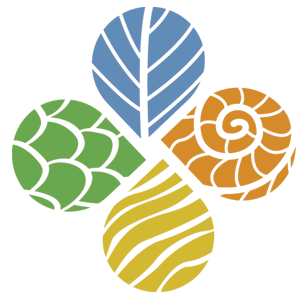The scientific view from behind the microphone
Imagine it. The sweaty palms, the nervous fidgeting. You're sitting in the waiting room of the radio station, the governors' office, or waiting to speak with the Chair of your Department. You begin question your preparation - What is the key message and main talking points? Is there an engaging and relevant story to highlight the science? Does it fit with the audience you will be engaging with? You begin cursing that you didn't have more practice!
The American Institute of Biological Sciences (AIBS) Communications Training Boot Camp for Scientists, lead by Robert Gropp and Julie Palakovich Carr, is an intensive 2-day professional development workshop that brings together scientists, students to program administrators, from a broad range of fields to learn the basics of effective and engaging communication. Increasingly scientists are being pushed into interacting and communicating with the public and policy makers, and sharing the excitement of their scientific activities and discoveries that benefit society. The most recent training, February 27-28, 2017, began with a brief background outlining the skills and techniques for effective science communication, then moved into discussions about the different needs and techniques for news delivery channels (radio, television to podcasts and print media). The key take home messages for me included: be aware of your audience, keep the language simple, think 'big picture' and tell a story rather than getting into the minutia, show-and-tell multimedia can help with engagement, and find common ground and interests. Even though I personally have experienced newspaper, magazine, TV and radio interviews in the past, I realize now, having taken the Boot Camp training, that I was likely underprepared for the task at hand - but managed to get away with it by being excited and enthusiastic about the science I was sharing with the world! The benefit of this training, and being part of a group of talented scientists keen to develop the skills to communicate with a broader audience, was that we could be critiqued on the delivery of our message in a positive environment. It rapidly became apparent that some scientific messages have more challenges and receive more attention in a changing political climate, but the combined efforts and input from participants helped with the translation of a tough topic into a relatable and relevant story.
The second day of the training introduced the complexity of developing and shaping scientific policy, and provided insights into becoming involved in policy development. The shared knowledge was also useful in context of speaking to institutional administrators, who may not have a scientific background, much like legislators, but need to be informed about the impacts, benefits and needs of scientific activities.
Some of the most enlightening information came from two invited panels - one from various media outlets, and another consisting of science policy professionals. The speakers provided context to the training, providing information about the realities, tips and tricks of engaging with media and policy makers. Their professional insight was immensely valuable for understanding the challenges they face in communicating science, from the skills needed to interpret the scientist's message into one that is compelling for their audience, to the deadlines they face on a daily basis. One important take-home message was to look within your own institution for government relations and marketing and communications professionals. They can be a valuable resource for assisting with advocacy and promotion of your science to the public and beyond. The one aspect not emphasized during training was the increasingly popular use of social media to broadcast science news, and what other options are available when your scientific message doesn't quite meet the needs of more traditional media outlets. Granted, this is would likely be another 2-day workshop, but rumour has it that AIBS is looking into incorporating such aspects in future training.
As scientists we are trained to be scientific communicators with our own vocabulary, terminology and jargon. While many of us think we are delivering a clean, exciting and insightful message about what we are working on and the discoveries we have made, we often miss the big picture. Having some training, such as that offered through AIBS, and practicing your pitch with colleagues and non-scientists can only help with selling your message.
AIBS offers the Communications Boot Camp for Scientists on a regular basis. The next 2-day course will be offered in later in 2017, but modified versions can also come to your professional society meeting or institution. More details and contact information can be found on the Boot Camp website. In particular, let us know at iDigBio if such communications training would be of interest to the natural history collections, ADBC, and BCoN communities. Build your confidence in talking to the media and policy makers, get behind the microphone, and promote your science!
-- Contributed by Shelley A. James, iDigBio




